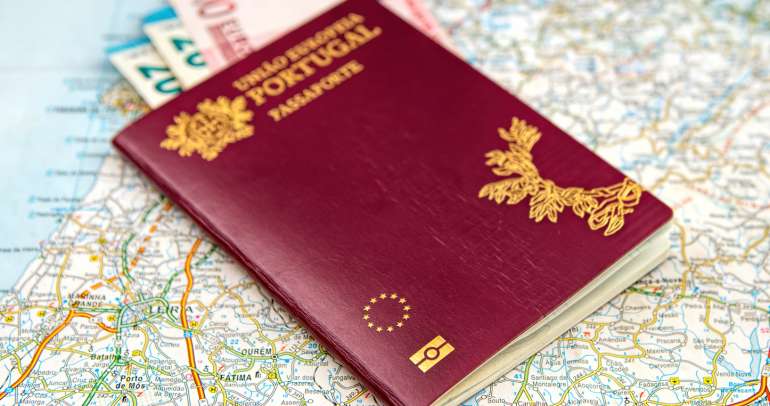Crypto-currency investors can enjoy wide range of benefits from second passport acquired through citizenship by investment (CBI) schemes.
Second passports from tax free countries only costs about 15 bitcoins for crypto investors, assuming the BTC price is $7000. This is quite cheap when looking at the passport benefits. Remember CBI schemes offer direct passports while RBI/GV schemes offer residence permits.
Here are some of the most compelling reasons why a passport or citizenship from a second country can benefit cryptocurrency investors.
1. Crypto Banned Countries
Those from the banned countries cannot effectively engage in blockchain or crypto projects, so can permanently move to cryptocurrency friendly and tax free jurisdictions through citizenship or residence by investment schemes.
| Full Ban | Banking ban | Implicit Ban |
|
|
|
2. Travel Freedom
A Second passport comes with full citizenship benefits plus visa free movement to hundreds of countries to attend conferences or events in the Blockchain and Cryptocurrency industry to promote their ICO’s.
In most cases, the countries that oppose cryptocurrencies offer weak passports in terms of travel freedom.
3. Tax Free
These are the zero tax free countries offering citizenship by investment programs to cryptocurrency investors. A passport or residence permit can play an important role in determining the tax status.
All CBI countries except in certain cases exempt non-resident citizens from personal income taxes.
| Capital Gains Tax | Zero Personal Income Tax |
|
|
4. Initial Coin Offerings (ICOs)
An ICO can be a source of capital for startup companies. ICOs can allow startups to avoid regulations that prevent them from seeking investment directly from the venture capitalists, angel investors or banks. A second passport opens up the world for startup entrepreneurs raise seed funding.
ICO’s has been banned by many countries for fraud and high risk scam schemes. Because of such abuses, many legitimate startups with brilliant ideas, have failed to secure their seed fundings.
SEC regulations prevent US crypto investors investing in ICOs because tokens are classified as securities offerings. China, South Korea has banned ICOs. Other countries such as France, Switzerland, UAE , New Zealand, Australia issued ICO regulations.
Countries have different approaches to how they regulate cryptocurrencies, tokens and ICOs. This can depend on the nature of the cryptocurrency itself.
5. Americans are Renouncing Citizenship
Many cryptocurrency investors have renounced their US citizenship fearing the tax implications. FATCA has also affected many accidental americans.
The trend is only on the rise and many crypto investors are seeking citizenship or residency in crypto friendly jurisdictions such as Portugal, Malta and Switzerland!
6. US Crypto Regulations
The United States is home to most number of cryptocurrency hodlers and activities involving large number of exchanges, trading platforms, funds, crypto mining facilities, and blockchain-oriented projects
The United States has complicated crypto regulations and IRS pursues tax evaders using cryptocurrencies as a means to escape US taxes.
The IRS determines Virtual currency transactions (eg Bitcoin) are taxable by law just like transactions in any other property. Taxpayers transacting in virtual currency may have to report those transactions on their tax returns.
SEC has said Bitcoin is a not a security but tokens and ICO are securities. SEC is yet to approve Bitcoin ETF fund.
These are cryptocurrency friendly countries, alternative to US
- Malta*
- Bermuda
- Switzerland
- Gibraltar
- Slovenia
- Singapore*
- Estonia
- Georgia
- Belarus
- Hong Kong
- Japan
- Germany
- Portugal*
* These countries offer Golden visa schemes.
How much a passport costs?
These are the current market prices for CBI passports in Bitcoins
- Antigua, Dominica, Saint Lucia – BTC 14 / $100K
- Grenada, St Kitts Nevis, Vanuatu – BTC 21 / $150K
- Malta – BTC 139 / $1m
- Cyprus – BTC 345 / $2.5M
- Montenegro – BTC 55 / $400K
- Bulgaria – BTC 165 / $1.2M
Note: Prices calculated assuming 1 BTC = $7000 as of Dec 2019
Processing time is 2-4 months.
Please note currently none of the Governments accept Bitcoin or cryptocurrencies as payments. Agents do accept BTC as their legal or application fee.
Cryptocurrency Regulations in CBI countries
We will go in-depth analysis of crypto currency regulations in CBI countries.
1. Malta
Malta is known as the blockchain island and a cryptocurrency friendly country.
International businesses related to cryptocurrencies pay as little as 5% tax. Several blockchain and fintech companies and well known major crypto exchanges currently operate in Malta.
Malta treats coins equivalent of fiat currencies.
Coins fall outside the scope of income tax and duty, and gains on isolated transfers will not be taxed in Malta. Conversely, where the Coins are transferred as part of a coin exchange business or trade, profits realized from such business would be taxed at the standard Maltese corporate income tax rate of 35%.
Exchange of coins to fiat is exempted from VAT. Mining is outside the scope of Tax
2. Cyprus
Cyprus is a cryptocurrency friendly country for startups and blockchain firms.
In Cyprus cryptocurrencies are generally considered not a legal tender
this country actually imposes no taxes on cryptocurrencies or cryptocurrency gains. Like many nations, cryptocurrencies are viewed as securities, and these are typically subject to capital gains taxes, but Cyprus has no such taxes, and this makes it a very attractive place for those looking to get a second citizenship for tax purposes.
3. Bulgaria
On February 14, 2018, the National Bank of Bulgaria announced that it joins the position of the European supervisory authorities on the risks inherent in buying virtual currencies. All activities associated with buying, selling, and paying with cryptocurrencies are not subject to licensing requirements.
Cryptocurrencies in Bulgaria are treated the same way as income from the sale of financial assets. The applied tax rate is 10% from the annual basis of assessment. The Bulgarian National Revenue Agency does not differentiate between either transactions from cryptocurrencies to fiat currency or from cryptocurrency to cryptocurrency.
4. Turkey
Turkey is one of the countries where cryptocurrencies are popular and widely used everyday. One in five turks use cryptocurrency according to a recent report
Cryptocurrency is not recognized under Turkish law While there are no bans or regulations on using the currency, the government does not consider it money either.
As a result, there is no regulation in the Turkish tax legislation related to bitcoin and similar cryptocurrencies.
5. Vanuatu
Vanuatu is a crypto and blockchain friendly country. There are no personal, capital gains taxes for cryptocurrency assets in Vanuatu.
In 2017, Reserve Bank of Vanuatu (RBV) issued a Press Release on use of Bitcoin as a form of payment in Vanuatu strongly advising all corporate, financial institutions, public enterprises, and individual customers and public at large to refrain from involving themselves in Bitcoin trading with bitcoins or other forms of cryptocurrency.
In 2018, Vanuatu issued a stock exchange license for cryptocurrency exchange to operate in Vanuatu.
The Vanuatu government launched Volcano coin as a digital currency for local use in Vanuatu.
6. St Kitts and Nevis
Saint Kitts and Nevis does not have specific legislation to regulate cryptocurrencies. However, it has signed up to participate in the ECCB pilot scheme digital version of Eastern Caribbean Dollar, which will test the use of cryptocurrencies alongside the country’s national currency.
There are fewer than 15 ICOs operate in the Island.
Roger Ver, aka Bitcoin Jesus and early investor in Bitcoin became a citizen of St Kitts and Nevis under the citizenship by investment scheme. He also renounced his US citizenship in 2014.
Roger Ver is also CEO of Bitcoin.com and Father of Bitcoin Cash (BCH) , currently lives in Tokyo Japan . He is a major investor in new bitcoin related startups including Ripple, Blockchain.info, Bitpay and Kraken. Roger has devoted his full time attention to Bitcoin and blockchains ever since. He
7. Antigua
Antigua is a bitcoin and blockchain friendly country among all the ECCU countries in the caribbean.
Antigua and Barbuda currently does not have any legislation that specifically regulates the use of cryptocurrency, but Antigua is exploring Blockchain and Cryptocurrencies for economic development (eg use in drivers licenses and identification documents)
In 2019, The Eastern Caribbean Central Bank (ECCB) and the Barbados-based fintech company, Bitt Inc. (Bitt) have signed a contract to conduct a blockchain-issued Central Bank Digital Currency (CBDC) pilot within the Eastern Caribbean Currency Union (ECCU).
In 2018, Antigua Government announced bitcoin would be accepted for citizenship by investment program (CIP).
Well known cryptocurrency expert Calvin Ayre is an avid Bitcoin SV supporter, is a Canadian-Antiguan entrepreneur based in Antigua and Barbuda, and the founder of the Ayre Group and Bodog entertainment brand. Ayre owns cryptocurrency news site Coingeek.com
Ayre was appointed as an Economic Envoy for Antigua and Barbuda to advise on developments in cryptocurrency.
8. Dominica
Dominica does not have any specific legislation to regulate cryptocurrencies. The usage of Bitcoin and other cryptocurrencies is still controversial and not popular in Dominica.
9. Grenada
Grenada does not have any specific legislation to regulate cryptocurrencies.
10. Saint Lucia
Saint Lucia does not have specific legislation to regulate cryptocurrencies.
11. Montenegro
Montenegro is a cryptocurrency and blockchain friendly country supports fintech businesses. There is no relevant legislation exists in Montenegro for sale of bitcoins, tokens or exchanges.
In 2018, several properties in Adriatic coast were sold through Ethereum and Bitcoins.
In 2014 the Central Bank of Montenegro reportedly issued a warning saying that individuals may own bitcoins at their own risk, although virtual currencies are not legal tender in Montenegro.
Montenegro opened a special economic citizenship scheme available to only 2000 investors who buy real estate in Montenegro for atleast EUR 250,000
In 2018, Citizenship coin was launched as the first cryptocurrency for the CBI industry. The project is still in development!



